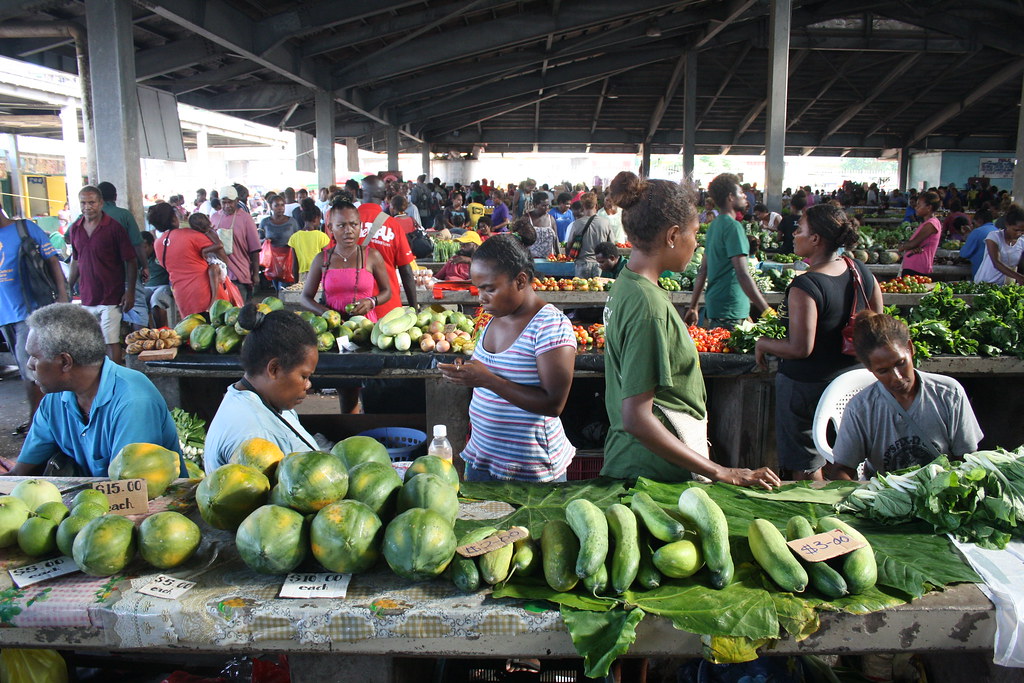Ten-year investment plan aims to revitalize agriculture in the Solomon Islands

Around 80 percent of Solomon Islanders live in rural areas. Most rely on agriculture and fisheries for their food and income.
But the country’s agriculture sector, increasingly prone to climate hazards, has underperformed over the last two decades, hamstrung by chronic underfunding, declining production and productivity, and a lack of infrastructure and services, among other factors.
The Solomon Islands’ ten-year Agriculture Sector Growth and Investment Plan hopes to change that.
Officially launched in October 2021, it details the Government’s goal to revitalize, modernize and commercialize its agriculture sector for the greater well-being, prosperity and food and nutrition security of all Solomon Islanders.
The FAO Investment Centre led the design of the plan, working closely with the country’s Ministry of Agriculture and Livestock, IFAD, farmer organizations, the private sector and other stakeholders and development partners.
Ethel Tebengi Frances, Permanent Secretary of the Ministry of Agriculture and Livestock, noted that the plan provides “a clear roadmap for the growth of the agriculture sector in the Solomon Islands” for the next decade.
“With adequate resourcing, I believe it will transform the agriculture sector and benefit many rural Solomon islanders and our economy,” she said.
“I look forward to the day when the research capacity of the Ministry is comparable to others in the region, where new innovative approaches and technologies are the results of the Ministry’s research efforts,” she added, “and to the day when our own local products are competing outside and with imported goods to cushion our economy.”
Four key investment areas
The plan is in line with the country’s National Development Strategy. It centres around four key programmes to guide public and private action and investment in the coming years.
The first, Governance, Management and Innovation, seeks to strengthen and professionalize the services of the Ministry of Agriculture and Livestock to create an enabling environment for innovation, research and sustainable agriculture sector growth.
One of the goals is to improve farmers’ productivity and market access by making the latest information, knowledge and technology readily available via decentralized extension services and greater private sector involvement.
Like many Pacific Island countries, the Solomon Islands struggles with the triple burden of malnutrition – high rates of obesity, micronutrient deficiencies and stunting and wasting among children. An increased reliance on imported foods, especially highly processed foods, has led to a rise in non-communicable diseases like diabetes and hypertension. In response, the plan’s second programme, National Food and Nutrition Security, promotes innovative technologies and resilient production systems to ensure greater availability and access to nutritious and diverse food.
Livestock Production for Import Substitution, the third programme, centres around the use of improved breeds, veterinary and technical advisory services and environmentally sustainable farming systems for smallholder and commercial livestock development. By boosting commercial production, the country hopes to shrink its beef, pork and poultry imports.
The Crop Production for Export Earnings programme focuses on increasing the productivity and quality of traditional export crops like coconut and cocoa and promoting lucrative new crops like coffee, kava, vanilla, cardamom and ginger for export and domestic markets.
According to FAO Senior Rural Institutions Officer Anton Glaeser, “committed leadership within the Ministry of Agriculture and Livestock, broad stakeholder consultations and the building on evidence-based good practices like integrated farming systems” were key to the successful launch of the plan.
The plan was largely developed under FAO’s Hand-in-Hand initiative, which supports nationally led programmes to end poverty, hunger and malnutrition and reduce inequalities.
Glaeser added that robust, innovative management, governance and leadership, strong farmer organizations and public-private partnerships will be essential to the plan’s successful implementation.
